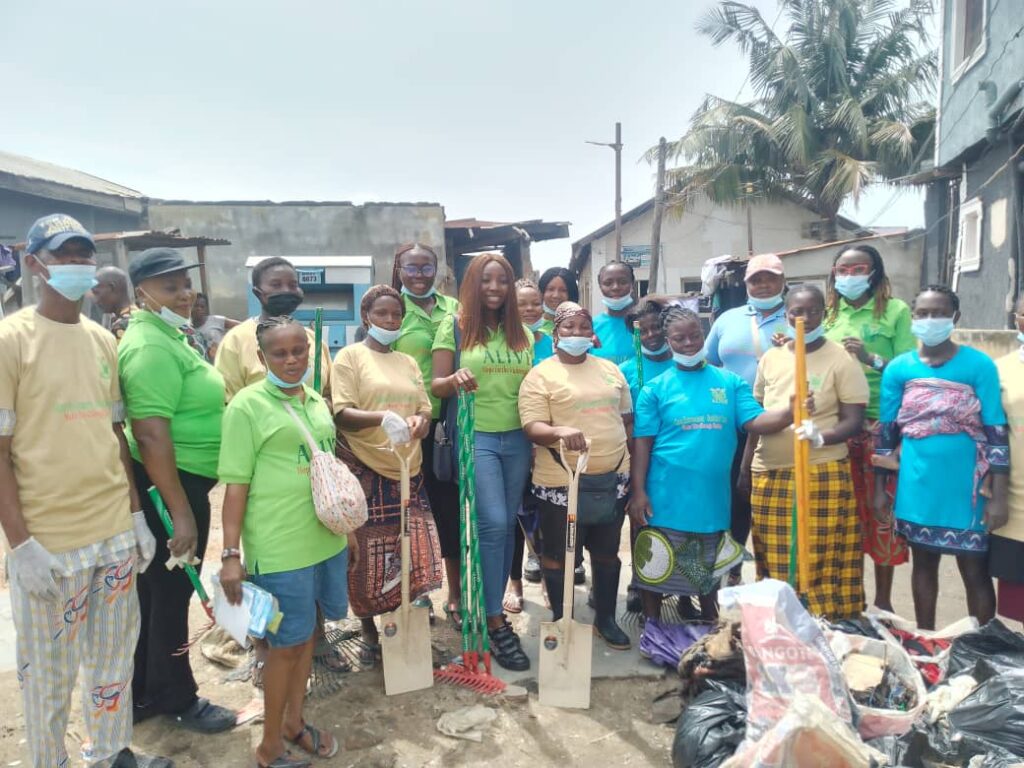A non-governmental organization, Aiding Lives Initiative for the Vulnerable (ALIVE), has carried out a community clean-up exercise in Ago Egun, a riverine settlement in the Bariga area of Lagos State, as part of its efforts to promote a healthy lifestyle for vulnerable women and children.
The Executive Director of the group, Omechukwu Pandora, said during the exercise on Thursday that the clean-up was aimed at raising awareness about environmental health, especially among women and children in underserved communities like Ago Egun.
According to Pandora, ALIVE has been working in the community since 2017, executing several health and hygiene-related programs for residents.
“I and my team have previously conducted maternal and child care programs in the community, including nutrition training for children and hygiene sessions to educate mothers on proper practices,” she said.
She recalled how, during a World Breastfeeding Day celebration held in the community during the rainy season, the entire area—including the event venue—was flooded.
“We couldn’t get into the community easily because of the flood. People walked freely through the dirty water, some wearing rain boots. After the program, watching residents wade through contaminated floodwater gave me and my team the inspiration to do more to promote a clean and healthy environment,” she said.
Pandora explained that the team returned to the community to document the impact of ocean surges and environmental degradation.
“When we last visited, we also held focus group discussions with women in Makoko and a community in Ijora to learn more about the challenges they face due to flooding and poor sanitation. Many of them shared how their areas get heavily flooded when it rains. Their children miss school, their livelihoods suffer, and the children often fall sick,” she noted.
She said one of the practical steps the team took was to mobilize women and other residents to clean and unblock the drainages in Ago Egun, acknowledging that while it may not be a permanent solution, it is a significant step in the right direction.
A resident, Omowunmi Badamosi, expressed appreciation to the group for the initiative. She said the clean-up may not permanently solve the community’s environmental problems but would allow for better drainage flow and reduce the risk of diseases.
“This clean-up will help the water flow freely rather than remain stagnant. Stagnant water breeds mosquitoes and causes malaria. This effort will help reduce epidemics in the community. We are truly grateful to ALIVE for coming to our aid,” she said.















